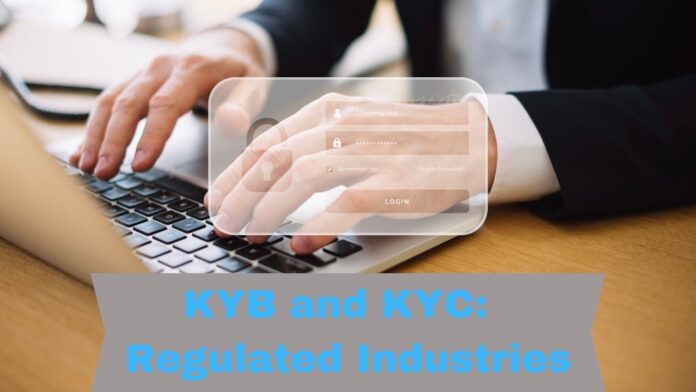Understanding regulatory compliance measures is crucial for businesses operating in regulated industries. Two such important measures are Know Your Customer (KYC) and Know Your Business (KYB). In this article, we will focus on what KYC and KYB actually mean, their impact on regulated industries, and how they compare.
What is KYC?
Know Your Customer (KYC) is a process implemented by businesses to verify the identity of their customers. This process typically involves collecting personal information and data such as the name of a company or person, their domestic or trading address, plus identification documents.
The core aim of KYC is to assess any potential risks associated with an individual customer, alongside ensuring compliance with Anti-Money Laundering (AML) regulations in various industries and jurisdictions.
How does KYC affect regulated industries?
KYC practices are now commonplace throughout many regulated industries. These include banking and financial services, insurance and real estate, plus online gaming and gambling.
The main focus of KYC in these regulated industries is to prevent fraud, and money laundering, and reduce the risks associated with any other illicit activities. Using the online gambling industry as a good example, stringent KYC measures are set in place to verify the identity of players and for compliance with responsible gaming practices.
However, the emergence of technologies like blockchain and Web3 have become disruptive factors in the usage of KYC, which some customers dislike because they are intrusive or inconvenient. This has given rise to no verification casinos in the gambling community, allowing users to play games without exposing their identity or sensitive information, thus maintaining privacy and anonymity.
What is KYB?
Know Your Business (KYB) is essentially a process of due diligence used by organizations, expanding on the principles of KYC such as verifying the identity of businesses, but with more emphasis on risk mitigation and further compliance with AML regulations.
Essentially, KYB is about understanding business identities and stakeholders, evaluating potential financial or legal and reputational risks, and ensuring trade partners are legitimate and compliant with AML and any other necessary regulations. KYB can also be deployed for Business-to-Business (B2B) and Business-to-Client (B2C) transactions
How does KYB affect regulated industries?
Akin to KYC practices, KYB is now commonplace in regulated industries such as banking and financial services, insurance and real estate, online gambling and gaming, plus many other sectors like supply chain and logistics, legal and professional services.
KYB is essential for mitigating risks associated with money laundering, terrorist financing, and corruption. By conducting thorough due diligence on corporate entities, businesses can ensure compliance with regulations and safeguard against potential reputational and financial risks.
For example, within banking and financial services, KYB processes are deployed to inform credit and lending decisions based on fraud prevention and compliance, such as ensuring a business or trading entity is legitimate and its activities are verifiable.
Comparisons between KYC and KYB
Although both KYC and KYB share similar purposes when it comes to due diligence and risk mitigation, they do contrast in terms of their focus and scope.
KYC and KYB are both indispensable tools for ensuring compliance with regulatory requirements and mitigating risks. While KYC helps in verifying the identity of individual customers to prevent fraud and money laundering, KYB enables businesses to assess the integrity of their corporate clients and partners.
By implementing robust KYC and KYB processes, businesses can enhance compliance, mitigate risks, and improve the integrity of their operations, making them important components. Likewise, understanding the nuances of KYC and KYB is vital for any business operating in regulated industries.





